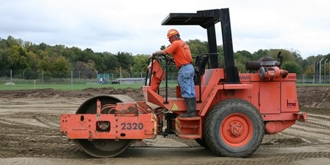Dump Truck Companies in Ohio - Trusted Dump Truck Providers Throughout Ohio
Dump Truck Companies in Ohio - Trusted Dump Truck Providers Throughout Ohio
Blog Article
Comprehensive Excavation Methods: Grasping the Fundamentals for Success
In the world of building and civil design, the relevance of effective excavation methods can not be overemphasized. The cautious planning, precise execution, and careful focus to detail needed in excavation projects demand a thorough approach that incorporates different essential facets. From first soil analysis to the execution of safety steps and routine progression monitoring, understanding these core elements is crucial for achieving success in any excavation endeavor. The real proficiency exists not simply in recognizing these fundamentals but in perfectly integrating them to browse the intricacies of excavation projects with finesse.
Understanding Excavation Task Planning

Successful excavation tasks are developed on the structure of extensive and precise planning. The first stage of any excavation task is the planning phase, where essential decisions are made that can considerably impact the outcome of the job. Throughout this stage, it is important to gather all pertinent information concerning the site, consisting of topographical surveys, dirt structure, and any prospective dangers that might exist. Understanding the job range, budget, and timeline restraints is important for developing a thorough excavation strategy that makes certain the project's success.
One secret element of excavation job preparation is the growth of a detailed timeline that outlines the series of tasks, due dates, and turning points. This timeline offers as a roadmap for the job team, allowing them to track progression and make necessary adjustments to guarantee the project remains on schedule. Furthermore, a well-defined spending plan that represents all expenditures, consisting of devices rental, labor prices, and products, is important for avoiding price overruns and delays. By very carefully considering all these elements during the drawing board, excavation jobs can be executed successfully and properly, causing successful results.
Dirt Evaluation and Site Evaluation
Performing complete soil evaluation and site analysis is an important step in the prep work phase of any excavation job. Dirt evaluation includes establishing the structure, framework, and homes of the dirt at the excavation website. This info is critical for understanding the soil's bearing capacity, dampness content, and potential for erosion, which are essential aspects in determining the excavation techniques and devices required for the job.
Website evaluation surpasses soil analysis and encompasses a wider analysis of the total website problems. This examination consists of determining any kind of possible dangers, such as below ground utilities, ecological problems, or unpredictable surface, that might affect the excavation procedure. By extensively assessing the site, task supervisors can create reliable excavation approaches that focus on security, performance, and environmental management.
Using innovative modern technologies like ground-penetrating radar, soil tasting, and drone studies can improve the accuracy and efficiency of soil analysis and website examination. Investing time and sources in these preliminary actions can inevitably save time and prevent costly delays or complications throughout the excavation procedure.
Equipment Option and Application
Reliable excavation jobs rely greatly on calculated tools option and use to guarantee optimum performance and efficiency. Choosing the right tools for the task is vital in taking full advantage of efficiency and lessening downtime. Elements such as the kind of soil, deepness of excavation, and job scope play a considerable role in identifying one of the most appropriate tools for the task handy.
In enhancement to selecting the appropriate equipment, proper usage is vital to project success. Operators must be educated to take care of the tools safely and efficiently - lancaster excavation. Regular upkeep checks and prompt repairs help prevent breakdowns and ensure regular efficiency throughout the task
Precaution and Rules Compliance
In the world of excavation jobs, prioritizing security procedures and compliance with policies is paramount to ensuring a lawfully sound and safe and secure operational atmosphere. Safety actions incorporate a variety of techniques, including conducting complete site analyses, implementing appropriate signs and obstacles, and giving sufficient safety and security training for all workers involved in the excavation procedure. Adherence to policies, such as OSHA demands in the United States, ensures that the excavation task meets the essential standards to protect employees, onlookers, and the surrounding setting.

Surveillance Progression and Adjusting Strategies
How can official statement project supervisors successfully track the my link improvement of excavation jobs and adapt their strategies as necessary to enhance outcomes? Surveillance progress is important for ensuring that excavation jobs remain on track and fulfill deadlines. Job supervisors can use various devices and techniques to track progression, such as everyday progress records, regular website inspections, and advanced surveillance modern technologies like drones and general practitioners tracking systems. By constantly keeping track of the project's innovation, supervisors can identify any kind of prospective hold-ups or issues at an early stage and take positive measures to address them.

Conclusion
Finally, understanding the principles of thorough excavation approaches is important for the success of any kind of project. By comprehending project preparation, evaluating dirt and site problems, choosing appropriate tools, adhering to safety laws, and keeping an eye on development, task managers can make certain a smooth and effective excavation process. Implementing these methods will cause successful results and reduce potential dangers or troubles during the excavation job.
The initial phase of any kind of excavation project is the planning phase, where vital choices are made that can content significantly affect the end result of the project. Comprehending the task scope, budget plan, and timeline restraints is crucial for creating a detailed excavation plan that guarantees the task's success.
Just how can project managers effectively track the innovation of excavation tasks and adjust their strategies appropriately to enhance outcomes? By carefully checking progression and being eager to adjust strategies, task managers can enhance the overall success of excavation projects.
By understanding project planning, analyzing dirt and website problems, picking proper equipment, abiding with safety regulations, and monitoring progression, task supervisors can make certain a smooth and efficient excavation procedure.
Report this page